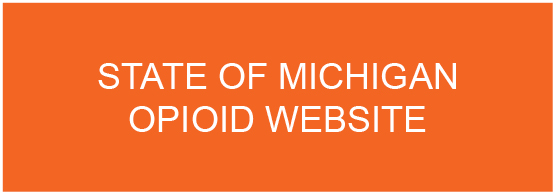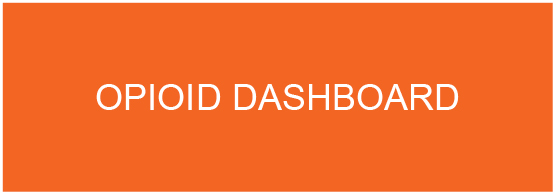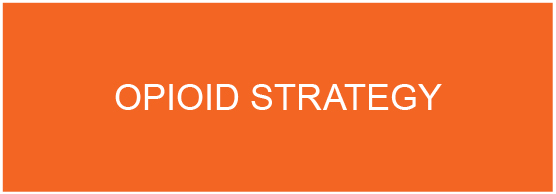Opioid Settlement Resource Center
Overview
The total estimated funds to be received across Michigan is approximately $1.6 billion with an estimated state share of $919 million and an estimated local government share of $745 million. These totals are estimated based on the following settlements: Distributors, J&J, Walgreens, Walmart, CVS, Allergan, Teva, McKinsey & Co., Mallinckrodt, Meijer, Publicis Health, Kroger and Endo.
To view estimated payments by settlement for the state, counties and municipalities, download the Opioid Settlement Payment Estimator under “Resources” on the Michigan Department of Attorney General Opioids website.
Distributors and J&J Settlements
In 2021, a $26 billion nationwide settlement was reached to resolve all Opioids litigation brought by states and local political subdivisions against the three largest pharmaceutical distributors: McKesson, Cardinal Health and AmerisourceBergen (“Distributors”), and manufacturer Janssen Pharmaceuticals, Inc. and its parent company Johnson & Johnson (collectively, “J&J”).
The state of Michigan is slated to receive nearly $800 million over 18 years. Fifty percent (50%) of the settlement amount will be sent directly to county and local governments. The national agreement also requires significant industry changes that will help prevent this type of crisis from ever happening again.
A state-subdivision agreement between the state of Michigan and local government directs how opioid settlement funds are distributed. All 83 counties in Michigan signed on to this agreement. Allocation percentages can be found on exhibit A.
Payments from the two settlements (Distributor Settlement and Janssen Settlement) will be received separately. There will also be separate notices for the two settlements and their applicable payments. BrownGreer is the national settlement distributor and is responsible for notifying local governments of their payments.
Exhibit E of the settlement provides a non-exhaustive list of expenditures that qualify as being paid for Opioid Remediation. Bi-annual reporting on non-opioid remediation activities is required.
The Special Circumstance Fund provides additional opioid abatement funding to address a special circumstance of the opioid epidemic that was not addressed by the original calculations for local government’s allocation percentage. Counties have the right to dispute the calculation of the payment they will receive within 21 calendar days of receiving their settlement payment notice.
Pharmacy and Manufacturer Settlements
In 2022, additional settlements with pharmacies and manufacturers were announced, including CVS, Walgreens, Walmart, Allergan and Teva. Sign-on for settlements with CVS, Walmart, Allergan and Teva are completed in Michigan, but payments have not yet begun. These four settlements are expected to bring in around $450 million to Michigan. The Walgreens national settlement will bring about $175 million into the state to be divided equally between state and local governments, payments have not started. The associated state-subdivision agreement outlines how funds are to be distributed. The state will also receive an additional $138 million from an additional settlement with Walgreens over 18 years.
November 10, 2023 was the deadline for applications for the Special Circumstance Fund for Teva, Allergan, CVS, Walmart and Walgreens settlements. Local Governments had an opportunity to apply for additional opioid abatement funding to address a special circumstance of the opioid epidemic not captured by the metrics used to calculate the local government’s allocation percentage.
Exhibit E provides a non-exhaustive list of expenditures that qualify as being paid for Opioid Remediation. Bi-annual reporting on non-opioid remediation activities is required.
Additional information about these settlements will be shared as available. View key dates regarding pharmacy and manufacturer settlements.
As of early September 2023, a settlement with Kroger will pay around to $41.9 million to Michigan nationally to be paid over 11 years. The Kroger settlement was released for local government sign-on in Michigan in July of 2024 and counties have until mid-August to choose to participate.
The settlement with Meijer was not a national settlement and only applied to Michigan, Kentucky, Indiana, Ohio and Illinois. In Michigan, only four counties, three cities and six townships signed-on, bringing a total of around $6 million to these subdivisions. Funds from this settlement were only directed to subdivisions and not the state.
Additional Settlements
The Masters Pharmaceuticals settlement was not a national settlement and only applied to Michigan, West Virginia and Nevada. In Michigan, 38 counties and seven cities signed-on, bringing a total of around $232 thousand to these subdivisions. Funds from this settlement were only directed to subdivisions and not the state.
Michigan can also expect additional funds received through companies Purdue Pharma, Mallinckrodt PLC and Endo, which are pursuing bankruptcy plans that include funding opioid abatement trusts. Nationally, settlements with Purdue Pharma and Mallinckrodt PLC are expected to total $6 billion and $1.7 billion million respectively. Additional information about Mallinckrodt can be found here.
While the settlement with Mallinckrodt PLC is expected to total $37 million in Michigan, it is unknown if all of these funds will be received. To date, $5.2 million of the funds have been dispersed to the State of Michigan and the five individual qualified block grantees (Kent, Genesee, Wayne, Macomb and Oakland counties). Payments are expected to take place over 8 years after the initial payment following bankruptcy. Qualified block grantees are the only local subdivisions that will receive funds directly. 70% of funds received by the State of Michigan will go be distributed to regions based on recommendations from the Michigan Opioids Task Force and 30% of funds will be used for non-regional opioid spending. Schedule A outlines allowable uses of funds. Annual financial and opioid remediation activity reporting is required.
The state of Michigan has already received some of $19.56 million in settlement funds from McKinsey and Co., a settlement from which all funds will be paid to the state. The state of Michigan is expected to receive an additional $11.7 million from a national settlement with Publicis Health, a global marketing and communications firm. Funds from this settlement will only be directed to the state government and do not include a requirement to distribute funds to the community. Approximately $11.2 million was received by the state of Michigan from the settlement with Endo. Local governments will not receive funds from the Endo settlement.
Tribal Settlements
Federally recognized tribes have filed lawsuits to seek compensation as sovereign governments, separate from lawsuits filed by states, counties and cities. Settlements with the Distributors and J&J will result in approximately $665 million across the country to tribes and Alaska native health organizations. Nationally, tribes can also expect $20 million to $30 million from the Mallinckrodt settlement, to be paid over eight years, $39.5 million from McKinsey and an estimated $150 million, paid over nine years from Purdue. Tribal settlements with Allergan, Teva, Walmart, CVS and Walgreens are also underway, estimating $546 million in total expected funds. Settlements with Endo, Kroger and Rite Aid are also expected. Additional information can be found here.
Annual Reporting Survey
How Should Counties Spend their Settlement Funds?
Michigan Opioid Settlement Funds Toolkit: A Guide for Local Spending
Templates and Tools
- Planning
- *Steering Committee Development and Tips for Processing Requests for Funds Guidance Document (PDF)
- Planning Worksheet Template (PDF) (Word)
- Steering Committee Creation Resolution Template (PDF) (Word)
- Opioid Settlement Work Plan Template (PDF) (Excel)
- Conflict of Interest Disclosure Form Template (PDF) (Word)
- Spending
- Spending Plan Template (PDF) (Excel)
- Request for Proposals Review Committee and Oversight Committee Creation Resolution Template (PDF)(Word)
- Request for Proposals and Associated Budget Template (PDF) (Word) (Excel)
- Request for Proposals Scoring Template (PDF) (Excel)
- Vendor/Contractor Agreement (PDF) (Word)
- Pass-through Entity Agreement (PDF) (Word)
- Vendor/Contractor Reporting Form Template (PDF) (Word)
- Spending Plan Adoption Resolution Template (PDF) (Word)
- Public Input/Feedback Session Resolution Template (PDF) (Word)
- Transparency
- General
- PowerPoint Presentation Template (October 2024) (PDF) (PowerPoint)
- Overdose Awareness Day and Recovery Month Proclamation (August 31 and September) (PDF) (Word)
View the Opioid Settlement Resource Library
Explore principles and tracking, evidence-based and promising practices, local government tools, legal resources, equity resources, other toolkits and reports and additional opportunities for funding.
Highlighted Resources
- Michigan Opioid Settlement Funds Part I: Key Agencies and Settlements
- Michigan Opioid Settlement Funds Part II: Frequently Asked Questions
- Michigan Opioid Advisory Commission
- National Association of Counties – Opioid Solutions Center
- Johns Hopkins Bloomberg School of Public Health – Principles and Indicators
- Opioid Settlement Tracker
- National Opioids Settlement
- Non-Opioid Remediation Use Reporting
- National Opioid Abatement Trust II
- National Opioid Abatement Trust II Reporting Tool
- Michigan State University – Northern Michigan Opioid Response Consortium
- University of Michigan – Opioid Solutions
- Michigan Health and Hospital Association – Opioid Epidemic
- Reporting on Addiction
- Gaps and Opportunities for Substance Use Disorder Recovery: Considerations for spending opioid settlement funds
- MAC Opioid Settlement Funds Issue Brief
Webinars and Presentations
- Voices of Lived Experience: Meaningful Engagement & Effective Uses of Opioid Settlement Funds
- Overdose Data in Our Backyard: Resource and Collaboration for Opioid Settlement Spending
- MAC webinar on Opioids
- Presentation on Opioid Settlement (2022 Legislative Conference)
Technical Assistance for Local Governments
Request no-cost technical assistance
- Additional no-cost external technical assistance providers are listed in the technical assistance section within the Opioid Settlement Resource Library.
- Local Government Learning Community – Participation is limited to government officials from counties and municipalities – Flyer and Registration
State of Michigan Resources
Statewide Opioid Settlement Open Meetings

Page Updated: 03/21/2025










